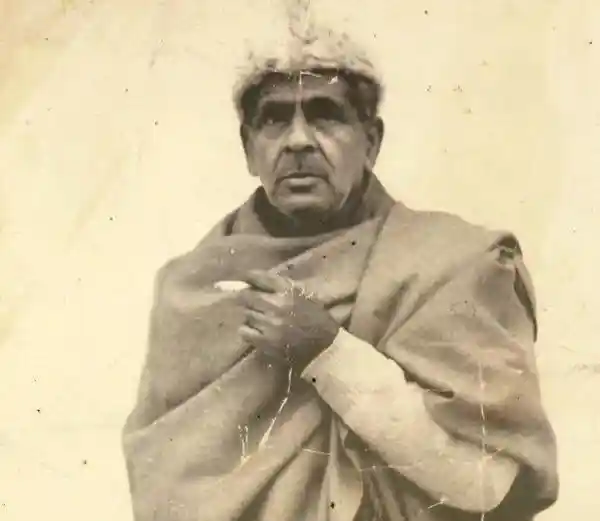Bazm e Zindagi Rang e Shayri
Urdu is counted amongst the most poetic languages across the world, thanks to the writers like Firaq Gorakhpuri who gave Urdu its due credit in the times when India was facing the language debate. His arrest by the British is a testimony of his revolutionary writing style!

Words of revolution made him a legendary man of Urdu literature; Image Source: Pinterest
His magnum opus Gul-e-Nagma not only touched the hearts of his readers but also earned him the highest literary awards, Jnanpith Puraskar and Sahitya Akademi Award. You’d wonder what made him such an eminent personality in Urdu literature amongst his eminent contemporaries like Sahir Ludhianvi, Faiz Ahmed Faiz, Jigar Moradabadi, and many more. The Urdu language gained its credibility with the famous writers expressing the beauty of life and love through it.
The language of Urdu and its essential role in binding the Indian sentiments through glaring slogans during the freedom struggle became a matter of concern for the British Raaj, as it was slowly cooking the nationalist upheavals against the raaj. And then began the quest of communalizing languages by asserting their religious affiliations to incite spite in Indian society. Urdu became a language of contention, as it was categorized as a Muslim language.
Yet, literati like Raghupati Sahay fluent in Persian, Urdu, and Hindi apart from an MA degree in English shone like the flagbearers of Urdu with an amazingly unique amalgamation of Hindi Khadi boli with it. He wrote about life, the tribulations of love, courage, and true nationalist spirit to a greater extent like many of the writers of those days. It was the era of writers when revolutions were born on the papers with the blazing words of Swaraj and Swadheenta.
Under the pseudo-name of Firaq Gorakhpuri, Raghupati Sahay helped in bridging the gap of intolerance through his powerful writings. His observation of society and belief that Urdu Shayari and its varied metrical forms of writing like nazm, rubaai, qat’aa, and ghazal were the traditions well-groomed in India.
During his young days, he was always drawn to regional literature. The artistic helms of Hindustani were always alive in his heart. He wrote his first ghazal during his graduation, which was appreciated by Premchand, and that encouraged him to keep writing.
Days passed and he got selected for the Provincial Civil Services and the Indian Civil Service of British India, but he refused to step into the shoes of the British mannequins of administrative services. Instead, Firaq took part in the revolutionary Non-Cooperation movement and got sentenced to 18 months of jail consequently. A writer being pushed in jail was a screaming testimony of how freedom of expression was attempting to hurt the fabric of colonial establishment in India!
After returning from jail his scholarly intellect landed him in the University of Allahabad, as a Lecturer of the English Literature department. His term in jail proved to leave an indelible impression on his writings. He was aware that a pen is mightier than a sword and only education could help Indians emerge out of the wrath of the imperial rule. He explored many writing formats and indulged in resonating the pure essence of the literary works of many of his contemporaries.
Perhaps, every writer aspires to achieve freedom of expression for making a mark with their writings and Firaq Gorakhpuri was not just allotted with it but also recognized for his contributions. He was awarded the Padma Bhushan and Soviet Land Nehru Award. An emeritus producer of All India Radio, he was not fond of idolatry recognition. In an interesting episode, the municipal officials went to his residence to propose the installation of his idol across the crossroads of Bank Road. Upon hearing this he reprimanded the officials and warned them from ever doing so in his lifetime.
That’s how Firaq was; he neither cared for recognition nor fame. All that he had wanted as a doted scholar, was some appreciation by heart for the love of his life, Urdu Zaban.


